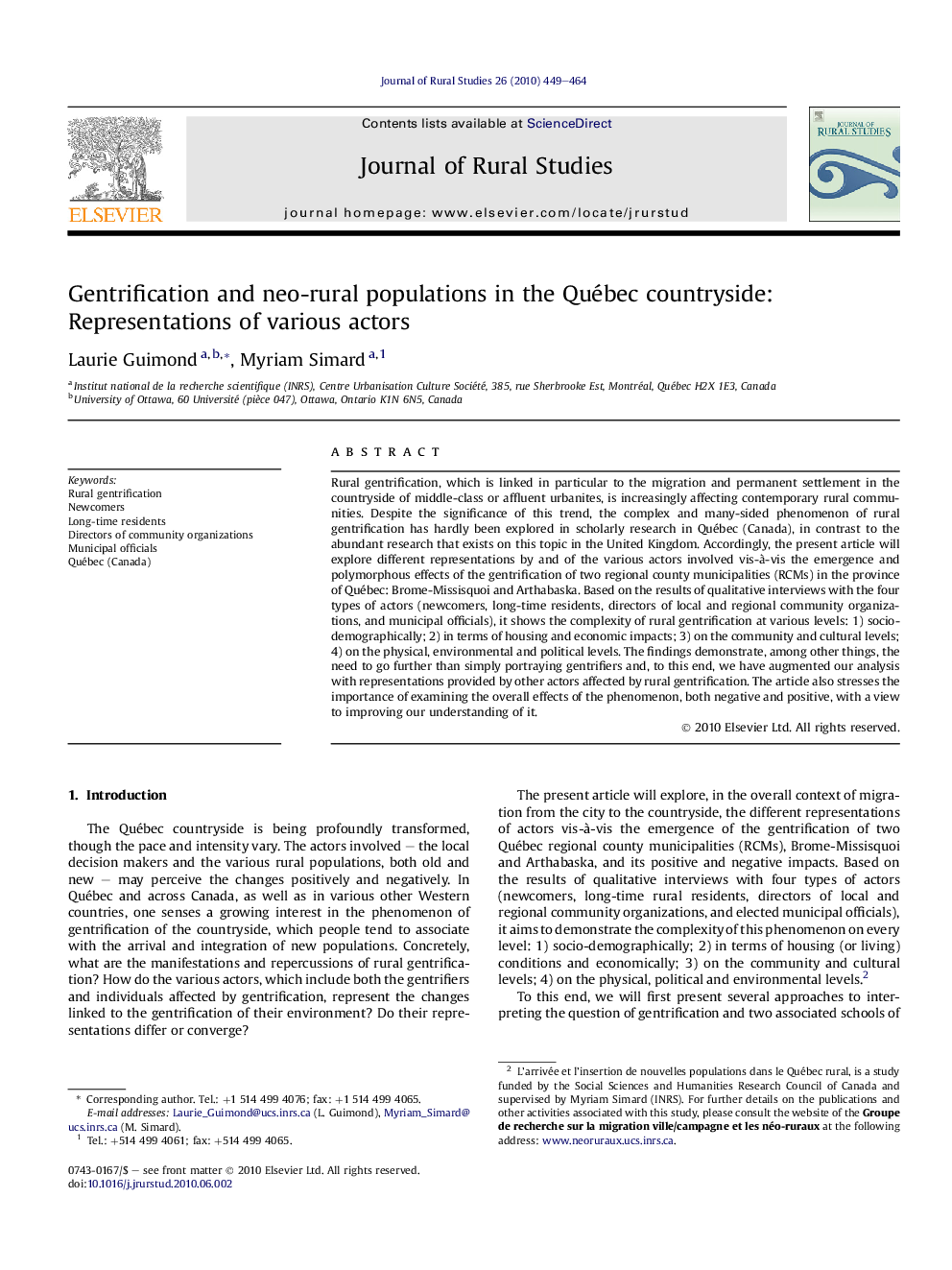| Article ID | Journal | Published Year | Pages | File Type |
|---|---|---|---|---|
| 92768 | Journal of Rural Studies | 2010 | 16 Pages |
Rural gentrification, which is linked in particular to the migration and permanent settlement in the countryside of middle-class or affluent urbanites, is increasingly affecting contemporary rural communities. Despite the significance of this trend, the complex and many-sided phenomenon of rural gentrification has hardly been explored in scholarly research in Québec (Canada), in contrast to the abundant research that exists on this topic in the United Kingdom. Accordingly, the present article will explore different representations by and of the various actors involved vis-à-vis the emergence and polymorphous effects of the gentrification of two regional county municipalities (RCMs) in the province of Québec: Brome-Missisquoi and Arthabaska. Based on the results of qualitative interviews with the four types of actors (newcomers, long-time residents, directors of local and regional community organizations, and municipal officials), it shows the complexity of rural gentrification at various levels: 1) socio-demographically; 2) in terms of housing and economic impacts; 3) on the community and cultural levels; 4) on the physical, environmental and political levels. The findings demonstrate, among other things, the need to go further than simply portraying gentrifiers and, to this end, we have augmented our analysis with representations provided by other actors affected by rural gentrification. The article also stresses the importance of examining the overall effects of the phenomenon, both negative and positive, with a view to improving our understanding of it.
